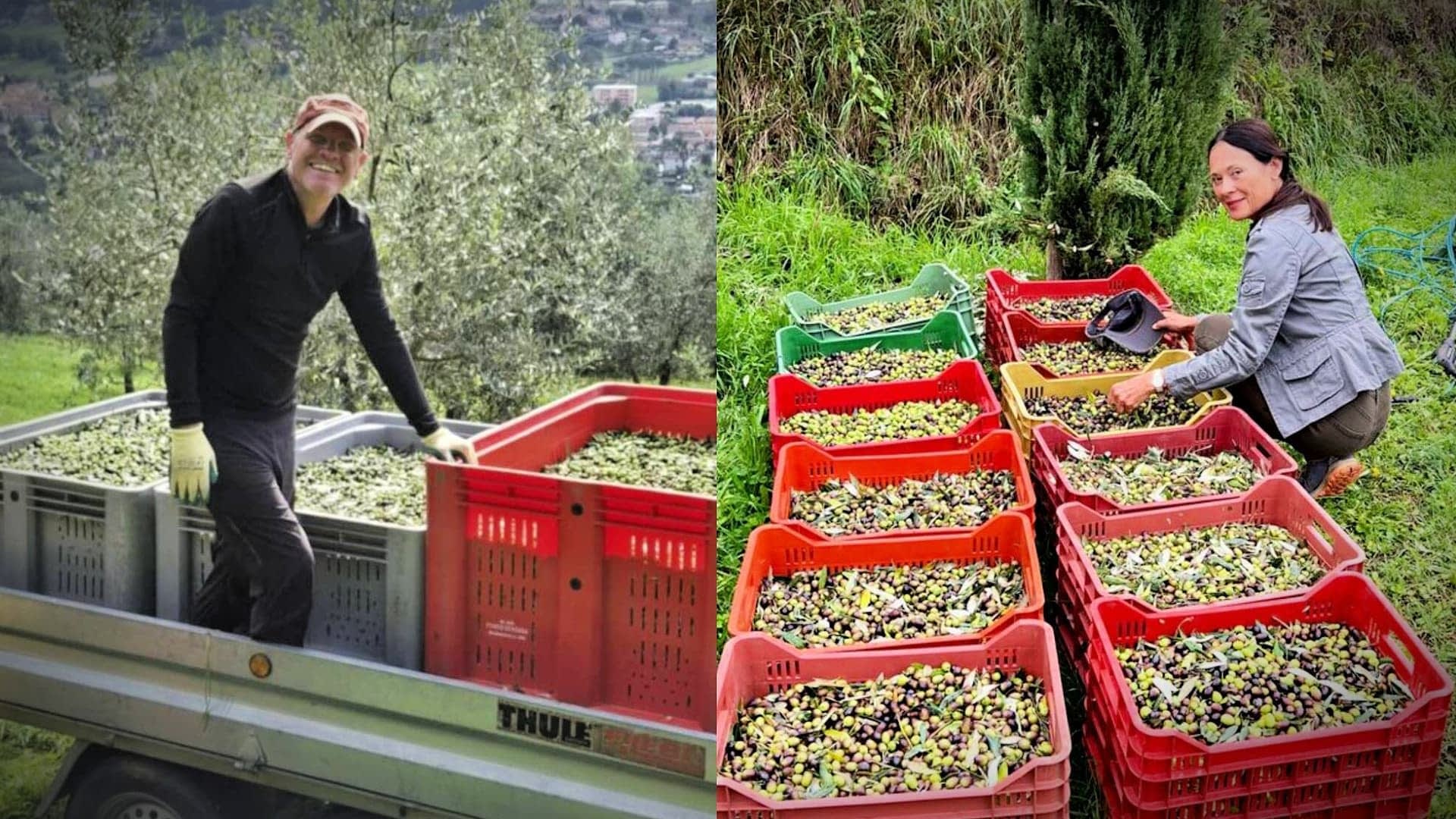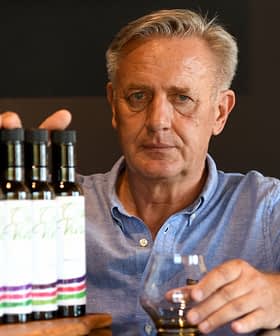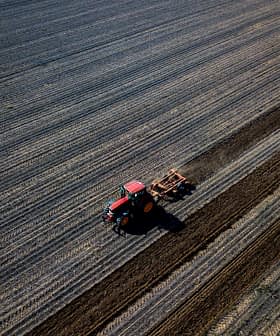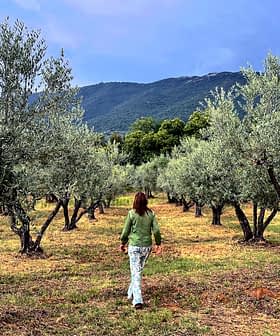Gioanna and Henrik Brorson-Jorgensen enjoyed the olive harvest in Uzzano, Tuscany, near Florence and Lucca.
“We are very pleased with the quality of the olive oil. It tastes extraordinary,” they told Olive Oil Times.
We don’t do anything special to our trees. We cut the grass about three times a year and don’t spray anything. Each year’s outcome is entirely in the hands of nature.
The Danish couple and their daughter founded Casale 3 Danesi in 2012, a multi-award-winning olive oil producer that also excelled in the 2024 NYIOOC World Olive Oil Competition.
With approximately 450 olive trees, the family cultivates four of Tuscany’s most typical varieties: Frantoio, Moraiolo, Leccino and Pendolino. The trees grow on terraces that surround the southern side of the family’s house.

Henrik and Gioanna Brorson-Jorgensen are the co-founders of the small Danish family farm. (Photo: Casale 3 Danesi)
“While some of our olive trees are just five years old, most are over 70,” Henrik Jorgensen said. “Our farm dates back to 1790 and is surrounded by 1.7 hectares of land. It is a historical building. Because of that, even its white color cannot be changed.”
Once, the family farmhouse was the home of the renowned Italian actor and comedian Raffaele Pisu. “We didn’t know that until our village doctor asked us where we had settled and then revealed this to us,” Jorgensen said. Now, a photo of Pisu taken inside the house hangs inside.
See Also:Producer ProfilesJorgensen said the family focuses on an early harvest and blends olives of all maturities into its award-winning extra virgin olive oil.
“When we start our early harvest, many trees still bear fully green olives, whose oil blends beautifully with that from the others that are just turning brown or black, as well as those halfway through ripening,” Jorgensen said. “The result is an extra virgin olive oil we like with those strong fresh notes.”

Casale 3 Danesi produces award-winning olive oil from 450 trees in Tuscany. (Photo: Casale 3 Danesi)
“Interestingly, many of our bottles go to the United States and Denmark, but many others stay in Italy, as we have several restaurant clients,” he added. “They also buy our olive oil online. They use our product in the kitchen to enhance the flavors of dishes like risotto; they recognize the quality.”
Like their neighbors, the family applies the same organic approach to all their crops, including vines and other fruits.
“When it all began, our neighbor introduced us to the fascinating world of olive oil production. He manages more than 2,000 trees and taught us the basics,” Jorgensen said.
“We don’t do anything special to our trees,” he added. “We cut the grass about three times a year and don’t spray anything. Each year’s outcome is entirely in the hands of nature.”
Over time, Jorgensen planted a small vineyard near the olive orchard. “I can see the difference, as our organic approach feels like an uphill struggle with the vineyard, but everything seems to fall into place with the olive trees,” he said.
“The weather and the fluctuations in olive production dictated by nature, such as the varying yields and oil content in the olives, are our biggest challenges,” Jorgensen remarked.
A nearby mill provides the Danish family with everything they need to produce high-quality extra virgin olive oil.
“Still, in harvest seasons like this one, where heavy rainfall made everything more challenging, it’s not easy for us or the whole region,” Jorgensen said.

Casale 3 Danesi sells extra virgin olive oil in Italy and exports to the United States and Denmark. (Photo: Casale 3 Danesi)
“At times, the mill didn’t follow the usual opening schedule because many people weren’t harvesting, which forced us to finish some harvest days earlier than we wanted,” he added.
The olives from the small orchard are handpicked with modern electric rakes and the traditional green nets that dot the Italian countryside during harvest season.
“When the rain comes, everything gets more complicated, of course,” Jorgensen said. “Plus, when you bring wet olives to the mill, you pay more for milling, as their weight varies.”
Rain impacted harvest operations for many Italian growers, forcing the family into a stop-and-go harvesting pattern. They spent full days waiting for the orchard to dry out.
“That was another challenge, as some workers who help us during harvest also have busy schedules elsewhere,” Jorgensen said. “Even with all those challenges during harvest, the result is an exceptionally good olive oil.”
“I just noticed that we rank 41st among olive oil producers in Italy and 80th worldwide. We are very happy about that,” Jorgensen concluded, referring to their placement in the Olive Oil Times World Rankings.








